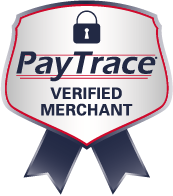How do you know if your company needs advertising or public relations? Most businesses need a combination of both as part of a well-defined and executed communications program, but they struggle to understand the differences.
Advertising and public relations are similar as they both build awareness of your company in a targeted section of the public. Beyond that, they are actually quite different. So, when pulling your hair out wondering if you should call an advertising agency, marketing agency or public relations firm, keep these basics in mind.
Advertising is paid space. You get to be in control of the message, be creative and build a campaign that shows your product or service. You talk to account executives, who then get graphic designers and copywriters to do some magic. You then, for a fixed price, buy air, or time, or pages, or impressions, all in an attempt to push your ad out there to your carefully targeted public and sell your product or service. Your target audience knows they are seeing an advertisement, and they know you are actively trying to sell them something.
Public relations is all about your relationship with the media, and by extension, their public. Public relations seeks free media attention for your goods and services. You send press releases, talk to editors, and hold events. The goal is to talk to people who talk to people, and to get those people to talk to their people about you. The downside is media types have no obligation to talk about you, and you have little to no control over how your message gets presented, if it gets presented at all. The good side is that when your audience sees you on TV, reads a blog post or article about you, they’re seeing something different than advertising, and they treat it differently than advertising. They trust it more. You didn’t pay for it, and it’s being delivered to them via an unbiased source. Your company, product or service has just been validated without having to be advertised.
So, which is better? Confusing answer actually- it’s both. Study after study shows that, although less quantifiable, public relations is better at building trust and spreading information in a brand or service that has been validated by unbiased sources. But, if done right, nothing is more powerful than owning your consistent message and creating good creative, targeting your specific public, and analyzing the results based on solid proof of performance.
The clear answer is to engage a marketing agency that can build a communications strategy that employs elements of both. You want to own your brand and your message, but you also want to be talked about and trusted. Only when both methods are working can you maximize your marketing.
One last bit to consider when discussing advertising and PR with your marketing agency, and that’s the power of digital marketing and social media. Adding social media to your marketing is not only important for branding, but it can be a powerful tool to bridge the gap between traditional advertising and public relations. A business can advertise on social media channels, then get endorsed and validated by the seemingly unbiased social media community. It’s the brave new world.







